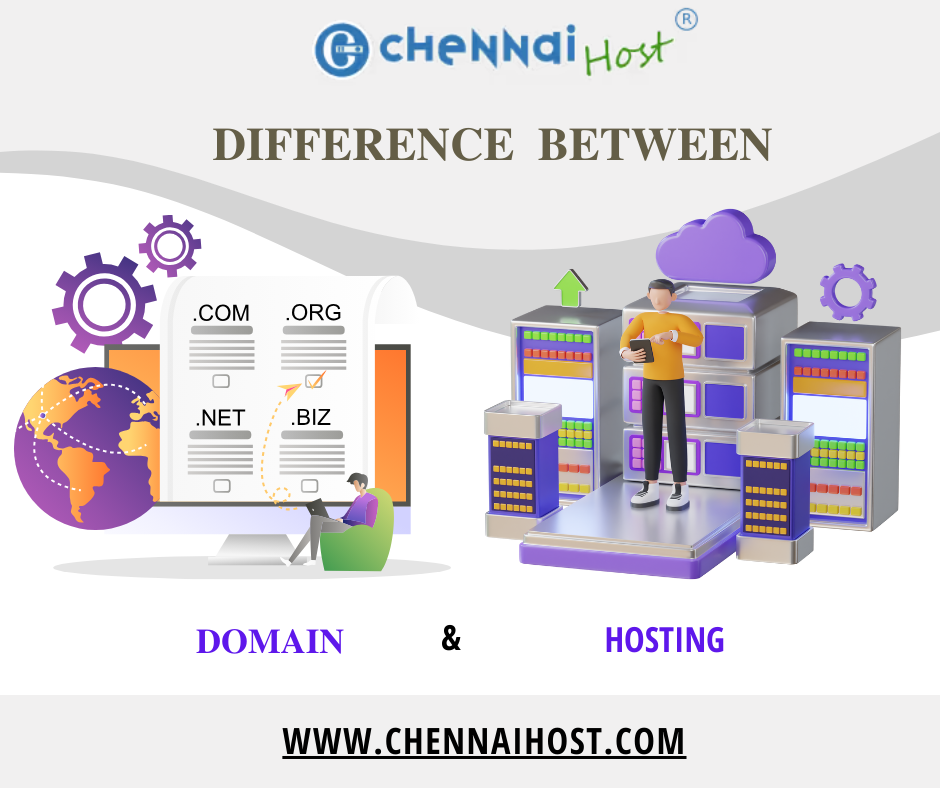Cracking the Code: Domain and Hosting Unveiled
December 02,2023

In the vast realm of the internet, two essential components play distinct roles in bringing your website to life: domain and hosting. Let’s unravel the mystery and understand the fundamental differences between these two pillars of the online world.
1. The Foundation: Domain vs. Hosting
Domain: Think of a domain as your website’s address. It’s the unique, user-friendly name that people type into their browsers to find your site.
Hosting: Hosting, on the other hand, is the physical space where your website’s files and data reside. It’s the powerhouse that keeps your site up and running on the internet.
2. Purpose and Functionality:
Domain: The domain serves as the memorable and easily identifiable part of your web address. It allows users to access your site without needing to remember a string of complicated numerical IP addresses.
Hosting: Hosting provides the infrastructure and resources necessary for your website to exist on the internet. It stores your website’s files, databases, and ensures they are accessible to users.
3. Ownership and Renewal:
Domain: When you purchase a domain, you essentially lease the right to use that specific web address for a set period (usually annually). You must renew the domain to maintain ownership.
Hosting: Hosting is a service that you subscribe to, often on a monthly or yearly basis. It’s like renting space on a server to store your website’s content.
4. Examples to Clarify:
Domain: Example.com, Google.com, or YourBusinessName.net.
Hosting: Think of hosting as the plot of land where you build your house (website). The domain is the address that directs visitors to your specific house.
5. Customization and Branding:
Domain: Your domain is crucial for branding. It’s the first impression users have of your website and contributes significantly to your online identity.
Hosting: Hosting doesn’t impact your branding directly, but it influences the performance and functionality of your website.
6. Multiple Domains, Single Hosting:
Domain: You can own multiple domains and point them to a single website. This is beneficial for branding variations or multiple businesses.
Hosting: Each website needs its hosting plan, even if multiple domains point to the same website. Hosting plans can often accommodate multiple websites.
7. Transferring and Migration:
Domain: You can transfer your domain from one registrar to another, allowing you to switch service providers while retaining ownership of your web address.
Hosting: Moving hosting providers involves migrating your website’s files and databases from one server to another. This process ensures a seamless transition without losing data.
8. Conclusion: A Symbiotic Relationship
In essence, domains and hosting work together to bring your website to life. While the domain is your web address, hosting provides the space and resources needed to make your website accessible to the world.
Understanding this distinction empowers you to make informed decisions as you embark on your online journey. Whether securing a memorable domain or choosing reliable hosting, both are integral to your website’s success in the digital landscape.